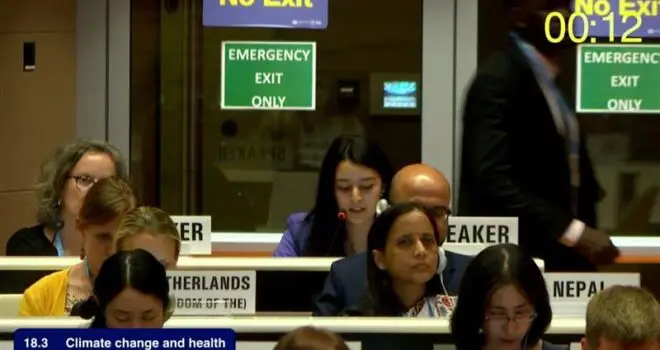The World Health Organization (WHO) has released a new report, based on a survey which tracks progress on the four time-bound commitments agreed by Member States (countries) in 2014 to strengthen countries’ abilities to tackle NCDs.
The Global Survey “Assessing National Capacity for the Prevention and Control of Non-Communicable Diseases” asked countries to provide information on their current capacities related to NCD infrastructure, policies on tackling NCDs, surveillance and health-systems response.
The survey report notes that some Member States are making significant progress, with 92% of countries having integrated NCDs into their national health plans. Furthermore, many governments have pursued cost-effective interventions, with 87% and 80% of countries having implemented tobacco and alcohol taxes respectively.
However the report also states that progress has been ‘insufficient and uneven’ and notes the need to intensify national action, with Dr Oleg Chestnov – Assistant Director-General for NCDs and Mental Health at WHO – urging governments to “steel themselves” to achieve NCDs targets.
Progress on Cardiovascular Disease Management
Progress on the prevention and management of cardiovascular diseases (CVD) has been mixed: according to the survey, CVD guidelines for disease management are available in 67% of countries,
Aspirin and thiazide diuretics were the most readily available medicines in countries (88%), and a 97% availability of blood pressure measurement equipment was reported.
However the implementation of cost-effective interventions such as taxes on sugar-sweetened beverages (18%) or foods high in fat, sugar or salt (8%) have remained low. Similarly only 21% of countries reported that cardiovascular risk stratification for the management of patients at high risk of heart attack and stroke was available in more than half of their primary health care clinics.
Priority Actions
The report identified six areas where action needs to be prioritized:
1. Increased funding for NCD activities
2. Stronger multisectoral coordination
3. Full implementation of policies
4. Robust and sustained surveillance
5. Detection, treatment and care for those with existing NCDs
6. Strengthen palliative care
The next Country Capacity Survey – the sixth edition – will be published in 2017, with the third United Nations General Assembly High-level meeting on NCDs taking place in 2018 in New York.


